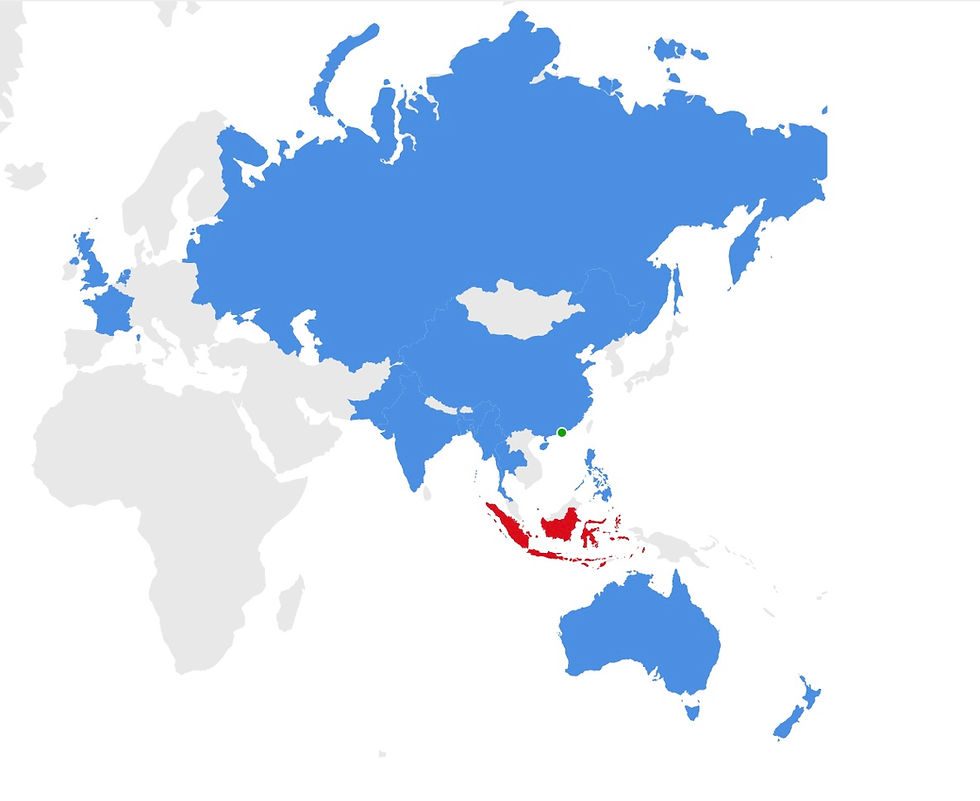Mineral/natural resources in ‘Asia and theFar East’, and the legacies of empire in a shifting international order, 1947-1974
- ECOINT
- Sep 25, 2025
- 1 min read
A Working Paper by Glenda Sluga | 2025

Source: see Working Pape, p. 15
This essay intervenes in current debates regarding the history of international organizations and their political significance, and the impact of extractive capitalism, by studying the UN Economic Commission for Asia and the Far East, or ECAFE, from 1947 to 1972. This study of ECAFE’s mineral/natural resources programs tracks the changing parameters of the tensions between imperialism and anti-imperialism, and of the capacious and often contradictory ideological work that ‘international’ could do. This history takes us from the region’s energy transition to oil and gas, to the invention of the ocean as a new ‘commodity frontier’. It establishes a picture of the international as a space contiguous with the politics of empires and nations, and their shifting borders. As ECAFE drew the interest of state and non-state powers, and public and private institutions in the economic potential of mineral resources, it accentuated the turn to ever-widening international ambitions for defining the relationship of humans to the earth itself.
Reference
Sluga, Glenda, Mineral/natural resources in ‘Asia and the Far East’, and the legacies of empire in a shifting international order, 1947-1974, EUI, HEC, Working Paper, 2025/02, [ECOINT] - https://hdl.handle.net/1814/93693



